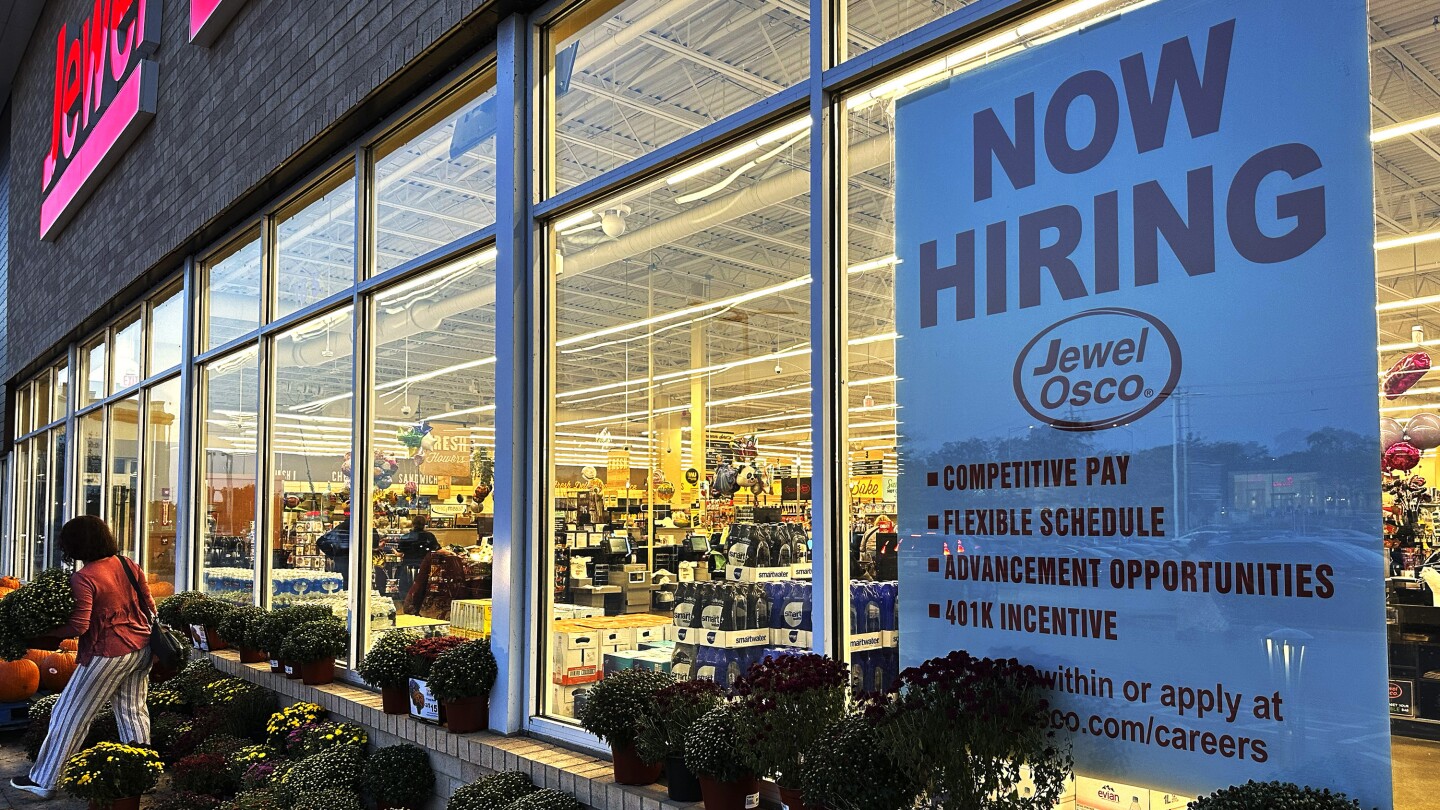NEW YORK (AP) — Most business economists think the U.S. economy could avoid a recession next year, even if the job market ends up weakening under the weight of high interest rates, according to a survey released Monday.
Only 24% of economists surveyed by the National Association for Business Economics said they see a recession in 2024 as more likely than not. The 38 surveyed economists come from such organizations as Morgan Stanley, the University of Arkansas and Nationwide.
Such predictions imply the belief that the Federal Reserve can pull off the delicate balancing act of slowing the economy just enough through high interest rates to get inflation under control, without snuffing out its growth completely.
…
High rates work to slow inflation by making borrowing more expensive and hurting prices for stocks and other investments. The combination typically slows spending and starves inflation of its fuel. So far, the job market has remained remarkably solid despite high interest rates, and the unemployment rate sat at a low 3.9% in October.



How would you describe ‘fixed’ inflation?
Price decreases would be deflation, but fixing inflation is literally something like stopping/slowing the rate of increase.
Normal people only really care about their own purchasing power. We care about our wages relative to the price of necessities and luxuries. Until paychecks go as far as they used to before the pandemic, normal people won’t consider the problem fixed.
Real wages, wages controlled for inflation, expressed in 1982-1984 dollars, on average have surpassed where they were before the pandemic.
Real wages in October 2023: https://www.bls.gov/news.release/pdf/realer.pdf
Real wages in December 2019: https://stats.bls.gov/news.release/archives/realer_01142020.pdf
In December 2019 it was $10.96 /hr expressed in 1982-1984 dollars. In October 2023 it was $11.05 /hr in 1982-1984 dollars.
So yes, purchasing power restored. Of course this is an average. So while most people have had their purchasing power restored, if someone is in a industry like tech that got hit hard by interest rates, they may not have experienced this. The wage gains have also been more pronounced for people with lower incomes than with higher incomes. So people with higher incomes are less likely to have seen their full purchasing power restored.
But hey our economy was nowhere near perfect in 2019 before the pandemic either. Let’s make it better by shifting focus to income inequality, reversing disastrous tax cuts made by Trump, improving our housing supply shortages, trying to find ways to effectively get the investor class to pay their fair share, etc etc. Biden’s increase of the corporate tax rate and creation of an internationally enforced corporate minimum tax to prevent tax dodging, and increased resources to the IRS to go after wealthy tax cheats are good starts, but there’s so much more to do. This inflation issue that has largely resolved now is just sucking all the air out of the room and distracting from all these other problems, many of which need local or state solutions.